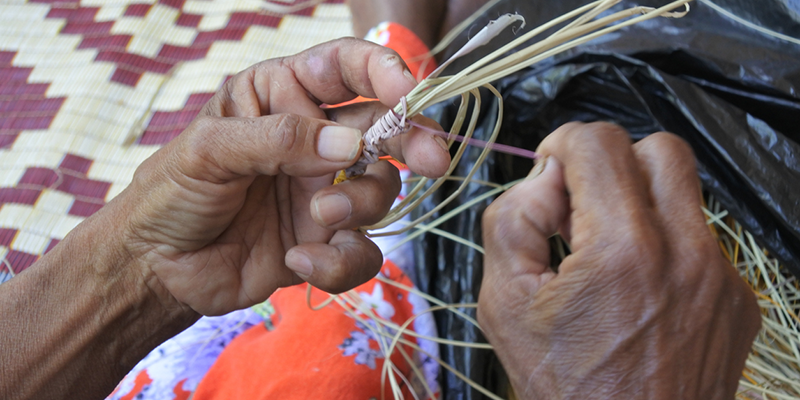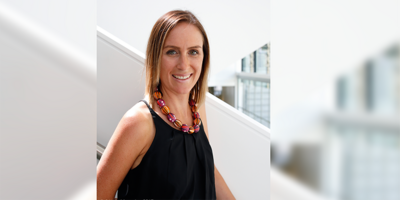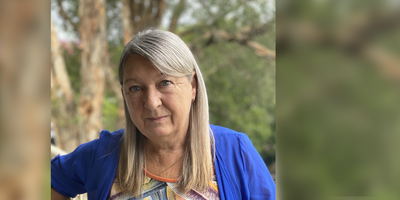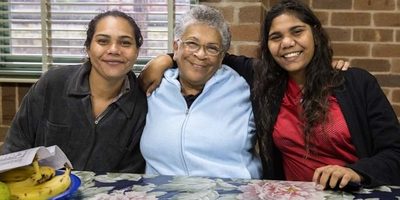
Meet Elizabeth Bourke, Research Associate, Aboriginal and Torres Strait Islander Health Program
NAIDOC week celebrations are held across Australia each July to celebrate the history, culture and achievements of Aboriginal and Torres Strait Islander peoples. This year, due to the COVID-19 pandemic, NAIDOC week was postponed to November. NAIDOC is celebrated not only in Aboriginal and Torres Strait Islander communities, but by Australians from all walks of life. The theme for this year is “always was, always will be”.
Improving the health of Aboriginal and Torres Strait Islander populations is a major priority for The George Institute for Global Health. Our Aboriginal and Torres Strait Islander Health Program at The George Institute drives meaningful and ethical research and advocacy to transform the health and wellbeing of First Nations peoples and communities.
To celebrate NAIDOC week, we profiled two of The George Institute’s Aboriginal researchers and asked them to tell us what motivated them to work in health research, what they are currently working on and what “always was, always will be” means to them.
Elizabeth Bourke is a Research Associate in The George Institute’s Aboriginal and Torres Strait Islander Program. Elizabeth fell into to health research by accident and is grateful she did.
“I was approached by my local Aboriginal Community Centre as they needed a community member to facilitate a project called the Ironbark Falls Prevention Project. Through facilitating the project, I was invited to come and work at The George Institute as a Researcher.”
Elizabeth is currently working on a project looking at role of Aboriginal and Torres Strait Islander Health Workers and Liaison Officers in quality acute health care services. This role has allowed her to further her skills in research.
“I absolutely love getting out in community with my people, it’s a great feeling to know that in some small way I could be making a difference,” she said.
Elizabeth is about to start working with Aboriginal Liaison Officers, Aboriginal Health professionals and patients at Royal Prince Alfred Hospital collecting data and she is looking forward to using Aboriginal methodologies to carry out the study. These methodologies include Dadirri (deep listening), Photovoice (using pictures where patients and family visually tell their stories) and yarning (a culturally safe research method of conversational storytelling).
When asked what “always was, always will be” means to her, Elizabeth explains it is about nurturing herself in culture and a feeling of deep connection to the land, water, earth and Kin, and passing that knowledge on to her children and grandchildren.
“I believe when I walk on the earth that my ancestors once walked there and that allows me to feel spiritually connected to the land. I believe the most important thing I can do is keep culture alive and pass down any knowledge I learn to others,” she said.
Elizabeth believes there needs to be more cultural awareness training in institutions, organisations and systems to allow Aboriginal and Torres Strait Islander people to feel culturally safe.
“I also believe that educating and upskilling Aboriginal people would encourage Aboriginal and Torres Strait Islander people to seek out health and wellness and feel safe in doing so,” said Elizabeth.
The Aboriginal and Torres Strait Islander Health Program at The George Institute has led the implementation of organisational changes to create a culturally safe working environment for Aboriginal and Torres Strait Islander staff and students, and to build cultural capability at The Institute.
This has included the introduction of cultural competency training, Indigenous research methodologies training and the production of an appropriate terminology guide. An Internal Research Committee for Aboriginal and Torres Strait Islander Health Research also helps to support and guide culturally appropriate research practice in Aboriginal and Torres Strait Islander health research and to foster collaboration.
Learn more about The George Institute’s Aboriginal and Torres Strait Islander Program here.




